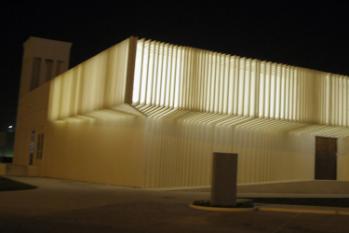Arab Regional Center for World Heritage
The Arab Regional Center for World Heritage is the first institute of its kind in the Middle East. The center was opened in 2012 as part of the Kingdom of Bahrain’s celebrations as the Capital of Arab Culture 2012, after the UNESCO Executive Council recognized it as a Category II center in 2009.
The center’s importance lies in the fact that it serves an effective tool to implement and promote the World Heritage Agreement within the Middle East region. To achieve this, the center provides information related to the agreement by translating the documents published on it into Arabic.
Moreover, the center seeks to develop the skills and capabilities of people and experts within the World Heritage field in the Arab world, combine Arab expertise and capacities on natural and cultural heritage together, and provide support to Arab countries and the World Heritage Center at the UNESCO to protect and preserve World Heritage Sites in the region.
The Arab Regional Center for World Heritage has already commenced its activities through a series of training programs, courses, and workshops catering to each country’s needs. At the same time, it is currently helping Arab countries organize workshops and conferences related to the agreement, lending its support to prepare and present cases for candidate sites looking to be inscribed as World Heritage Sites, as well as helping in the management and protection of these sites.
Establishing the Arab Regional Center for World Heritage reflects the Kingdom of Bahrain’s commitment to the agreement signed with the UNESCO, and further bolsters the World Heritage Agreement of 1972 which was endorsed by Bahrain in 1991.
The World Heritage Agreement is a unique legal tool designed to protect and maintain the world’s natural and cultural heritage. The agreement, which has been endorsed by 190 countries around the world, involves categorizing the sites into cultural heritage sites, natural heritage sites, or a mix of the two. Of the 962 sites inscribed as World Heritage Sites to date, Arab countries are home to 73 of them, most of which are categorized as cultural heritage sites.








